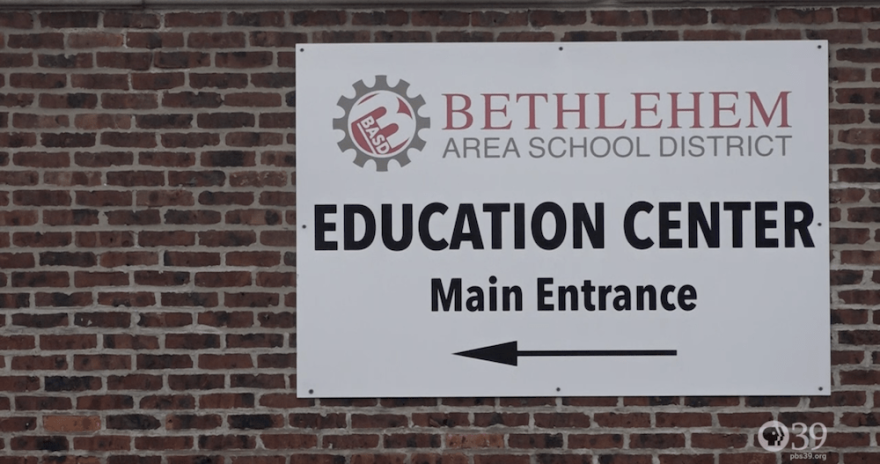BETHLEHEM, Pa. — The Bethlehem Area School District approved a resolution Monday night calling for the state to cover the cost of schools to provide free breakfast and lunch for all students.
School administrators recently looked at serving free lunches district-wide and to all of the elementary schools and concluded the district doesn’t currently have enough qualified low-income students to make it financially feasible.
- Bethlehem Area School District said it was not feasible to opt into the Community Eligibility Provision
- It does not have a high enough percentage of qualified low-income students at this time
- The district is owed $313,833 in school lunch debt
“Ideally, we don’t want to have to use fund balance or money from the general operating budget to have to pay for lunches,” retiring Superintendent Joe Roy said.
The district participates in the national free breakfast and lunch programs. It’s eligible to enroll in a four-year federal program called the Community Eligibility Provision. Acceptance is determined by the percentage of high-poverty students identified who directly qualify for subsidies such as food assistance, homeless services and cash assistance. When divided by the total number of enrolled students and multiplied by 100, identified students must equal or be above 40%.
Under the federal school meal programs, families with incomes of less than 130% of the federal poverty level qualify for free breakfast and lunch. Students from families with incomes of between 130% and 185% of the poverty level are eligible for reduced-price meals. Those from higher-income households pay full price.
Participating in CEP would allow the district to offer all enrolled students no-cost meals without collecting income data. But an internal analysis found Bethlehem Area School District has about 48% of identified students and at current reimbursement rates it needs about 59% to break even. The district projected a loss of revenue of $294,448 for the 2023-24 school year if it enrolled into the CEP program by the June 30th deadline.
That would be on top of the district’s current unpaid school lunch debt of $313,833, Roy said.
The number of students getting a meal from one of the school cafeterias has dropped since Congress ended the pandemic free lunch program before the 2022-23 school year, Roy said, and families saw wage increases, but rising housing, food and inflation prices rose higher than wages.
Research shows students who have enough to eat have higher academic success.
“It went back down this year when they had to actually pay for the lunch,” he said.
In September 2022, Bethlehem’s unpaid school lunch debt was $138,400. Roy said active debt was $224,412 and inactive debt, which was incurred by students no longer enrolled in the district, totaled $89,421.
"We’re just expanding the definition of what public education in a public school system is supposed to provide."Pa. Rep. Josh Seigel, D-Allentown
A proposed federal rule would reduce the number of impoverished students needed to qualify from 40% to 25%, but Roy said lowering the participation threshold would not help the district. He said increasing how identified students are multiplied and the actual reimbursement rate would be more helpful.
The resolution the school board approved advocated the passage of HB180 and SB180, bills which would require the state to reimburse school districts the difference between the federal reimbursement and the actual cost of providing the meals.
State Rep. Josh Seigel, D-Allentown, a co-sponsor of the bill, said he wants to expand the current universal free breakfast program to include free lunch for students.
“This legislation would ensure that the commonwealth, much like we guarantee every kid gets public education, we’re just expanding the definition of what the public education in a public school system is supposed to provide,” he said. “And by providing this, I think it’s $400 million a year, we can make sure that school districts can provide this service to every kid without worrying about this expense.”
The resolution from the Bethlehem Area school board said the bill could return more than $1.1 million to the local economy.
House Education Committee Chair Peter Schweyer, D-Lehigh, said he held a public hearing on the bill in March. He said he supports the legislation and it’s the subject of negotiations as the legislature works to finalize a state budget for the next fiscal year.
California, Maine, Colorado, New Mexico and Minnesota have passed universal free school meals for all students.


